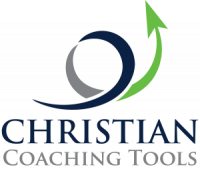One thing that has become very clear to me as a coach is this: the journey for personal development never ends. There is always more to learn, new ways to push yourself, and areas in which you can grow. Coaches know that this is a never-ending process, but even the best of us can reach a comfortable place in our work and become a little stagnant. The challenge is in consistently identifying ways to develop yourself – and then following through.
We have spent the last few blogs looking at self-assessment, and this week we’re looking at the behavioral expression: personal development which is focused on determining ways you can improve as a coach and create action plans for implementation.
There are so many ways to improve as a coach, but here are three that we have found especially valuable:
- Periodically work with a spiritual director, leadership coach, or life coach for your own personal development.
- Give yourself permission to enjoy a taste of learning again.
- Brainstorm potential resources. Whatever area(s) you want to develop in as a coach, take stock of the available resources. Consider books, worksheets, tools, and people.
Recently, I’ve felt that an area I’ve been neglecting and want to grow in is my spiritual formation. This impacts my ability to listen for and discern the voice of the Holy Spirit – the competency we call Abiding in Christ. I’ve reflected on ways to grow in this area, and one of the realities for me is that I want to do this in community, not in isolation. I also want to develop my spiritual formation over a period of time, not overnight. And, finally, perhaps another insight for me is that I wanted an incentive – like traveling to a new place.
As a result, I’ve decided to participate in a three-year cohort as part of a group in the Fuller Doctoral program. In September, we met for 10 days at a retreat center where we laid the foundations of spiritual formation. One of the exercises we did that set the tone was the opportunity for each of us to share our stories with our classmates. Each day, three students were given twenty minutes to share the high points, challenges, and lessons from their own lives. This in itself was transformational. In the evenings, after a long day of learning, we met in small groups to practice the skills of listening and asking questions (and in the vernacular of the Spiritual Director – to “hold space” – the idea of sitting with a person as the Holy Spirit ministers to them). By the end of each day we had greater clarity on our individual journeys and ways we could help others along theirs.
In between our annual ten-day retreats, we meet in small groups to practice spiritual direction with our classmates. In addition, I have enlisted the services of a seasoned Spiritual Director for my spiritual formation journey. The climax of the program is a trip to Iona, Scotland, where we will be meeting for our final retreat. All of this will contribute in a significant way to my personal development as I continue to follow Jesus on my spiritual journey.
Here are five reflection questions to help you discern where to focus your personal development:
- What do you sense the Lord is saying to you about your personal development?
- In what areas are you strong?
- What areas of your life need more attention?
- Brainstorm ways to address that area(s).
- What is the most important thing you can do during this season to develop that area?
If you are interested in a full explanation of how our team (namely Dr. Bob Logan & Dr. Chuck Ridley) arrived at the competencies of a Christian Coach – CLICK HERE. And check out our new resource for Christian Coaching – ChristianCoachingTools.com!

Identify areas that need your focused attention as a Disciple Coach
Photo by Khamkéo Vilaysing

